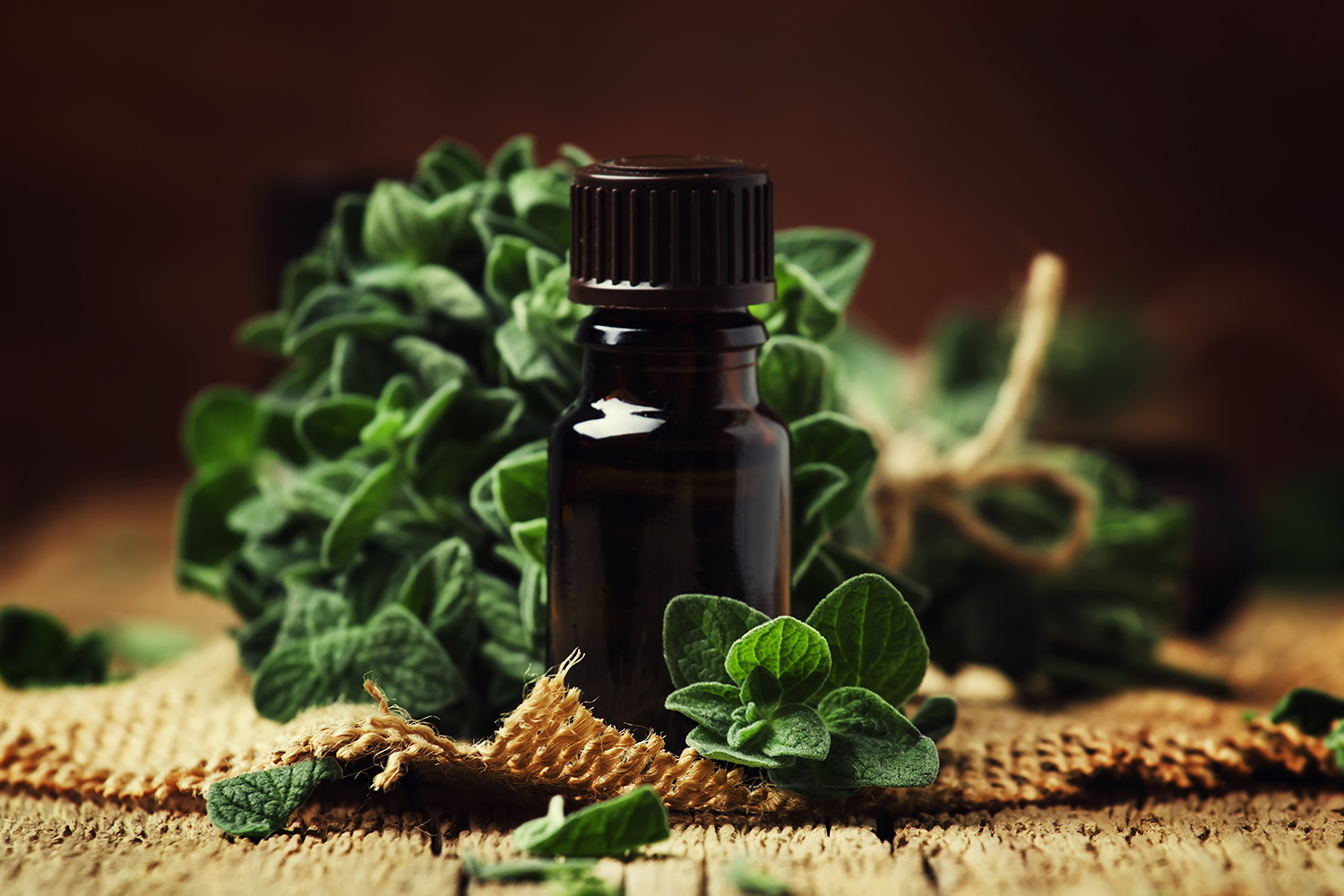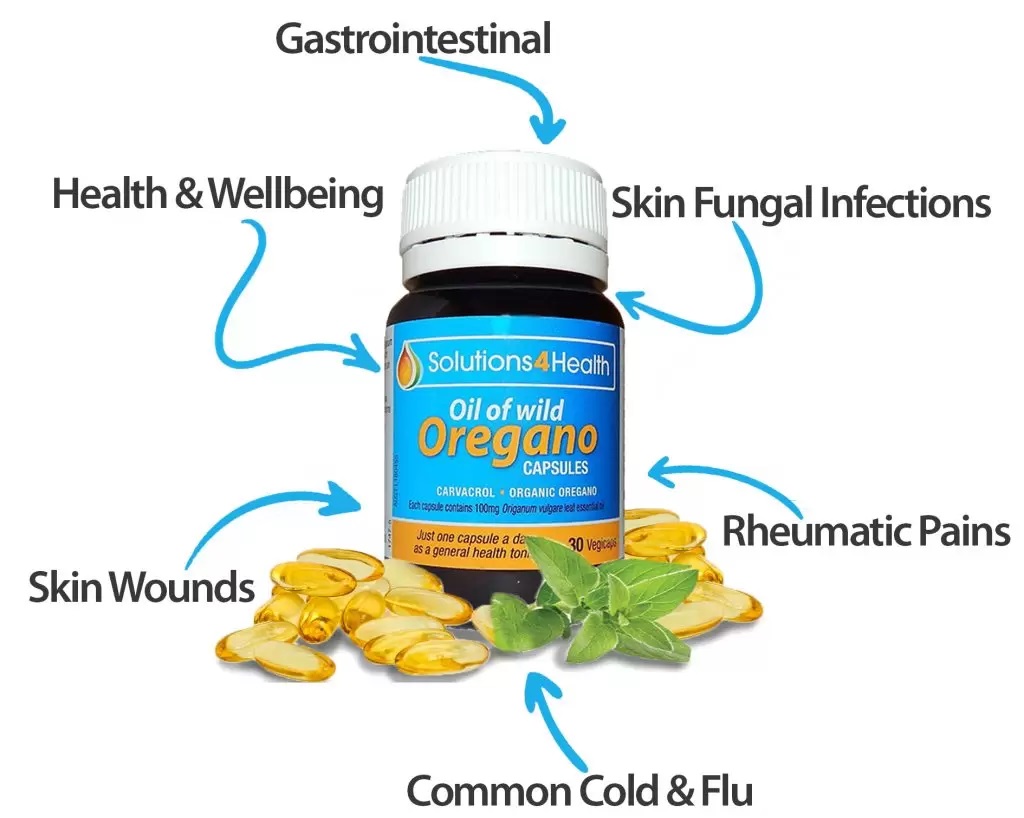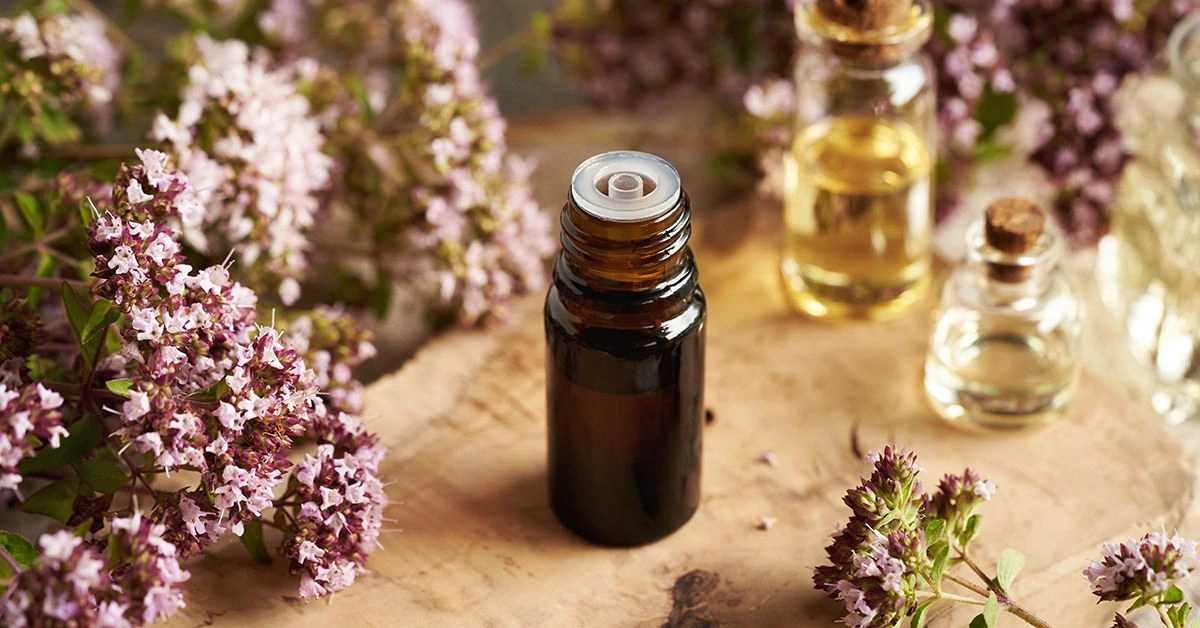Oregano oil may harbor compounds with antiviral, anti-inflammatory, and antioxidant actions. Still, these effects haven’t been firmly demonstrated in human trials.
Oregano oil can refer to a few different products:
- Oregano essential oil: A highly concentrated form used mainly in aromatherapy. A few drops can be diluted in a carrier oil (like jojoba) for topical use. Essential oils should never be swallowed.
- Oil of oregano: A less concentrated preparation that can be diluted in water or juice and ingested in small amounts.
- Oregano oil supplements: Typically soft-gel capsules containing oil of oregano for oral consumption.

Oregano oil contains several active constituents that may have therapeutic properties, including:
- carvacrol
- thymol
- terpinene
Traditionally, people have used oregano oil to support respiratory health, and it’s gained popularity as an alternative approach for easing cold and flu symptoms. This interest stems from its content of compounds that show antiviral activity in lab studies. However, the bulk of evidence comes from in vitro and animal research rather than trials in people.
At many health food stores you’ll find oil of oregano sold as soft gel capsules; tinctures intended for oral use are also available.
Oregano essential oil is sold as a potent aromatic oil for topical application and diffusion in aromatherapy.
Keep reading to explore the evidence for oregano oil’s effects on cold and flu symptoms and tips for safe use.
Supplements and safety
The FDA doesn’t rigorously regulate herbs and dietary supplements, so issues such as purity, contamination, potency, and labeling can occur. Choosing brands that undergo third-party testing can help ensure the product matches the label. It’s also a good idea to consult your healthcare provider before using any herb, essential oil, or supplement.
What are the benefits of oregano oil when sick?
Recent studies have investigated the possible health advantages of oregano oil, and results are encouraging but not definitive.
A 2017 study reported that oregano essential oil, particularly from the plant’s leaves, exhibits significant antioxidant activity. The authors pointed to oregano’s traditional use for fevers and respiratory complaints—symptoms commonly linked to colds and influenza.
A 2020 review found that oregano essential oil can inhibit several human and animal viruses in test tube experiments. These include:
- herpes simplex virus types 1 and 2 (HSV-1 and HSV-2)
- poliovirus
- dengue virus type 2
- human adenovirus type 3 (HAdV-3), which can contribute to respiratory illness
- coxsackievirus B1
The reviewers suggested carvacrol, a primary constituent of oregano oil, is likely responsible for much of this antiviral activity. While isolated carvacrol may be potent against certain viruses, whole oregano oil appears to be particularly active against respiratory viruses such as influenza strains.
Bear in mind that these findings come from laboratory and animal work. Human physiology is more complex, and it’s uncertain whether the same antiviral benefits occur in people.
Is oregano oil safe?
Oregano oil is generally considered safe for many people, but it can cause adverse effects in some cases.
Avoid oregano oil if you have allergies to plants in the Lamiaceae family, such as mint, sage, basil, or lavender, because cross-reactivity is possible.
Do not use oregano oil when pregnant or breastfeeding, and consult a pediatrician before giving it to a child.
People with bleeding disorders or those taking medications that affect clotting should not use oregano oil without medical advice.
Even without an allergy, oregano oil may produce side effects including:
- nausea
- vomiting
- diarrhea
- digestive discomfort
- fatigue
- increased bleeding
- muscle aches
- vertigo
- headache
- trouble swallowing
- excessive salivation
How do I use oregano oil?
There are a few ways to use oregano oil depending on the preparation.
Oral options include taking oregano oil supplements in capsule form or using an oil of oregano tincture made for ingestion. Always follow the label directions for dosing.

If you have the concentrated essential oil, do not ingest it. Instead, use it externally or in aromatherapy by:
- adding a few drops to a steam diffuser or a bowl of hot water for inhalation
- mixing a few drops with a carrier oil (for example, coconut oil) before applying to the skin
Oregano oil is potent, so begin with the smallest effective dose to assess tolerance. Increase gradually only if needed and within recommended limits.
Do not exceed the manufacturer’s recommended dose, and remember that advised amounts can vary between brands.
The bottom line
Based on studies of its compounds, oregano oil offers several potential health advantages, including activity against certain viruses. Nevertheless, larger human studies are required to confirm oregano oil’s effects on colds and influenza.
If you have a cold or the flu, you might choose to try oregano oil as part of your approach. Make sure to stay within recommended dosing guidelines.
Also consider other home remedies for colds and flu, such as nasal irrigation, gargling with salt water, or taking a warm bath. For related home remedies, you might read about apple cider vinegar for colds.
If symptoms persist or worsen despite self-care, seek advice from a healthcare professional.

























Leave a Reply
You must be logged in to post a comment.